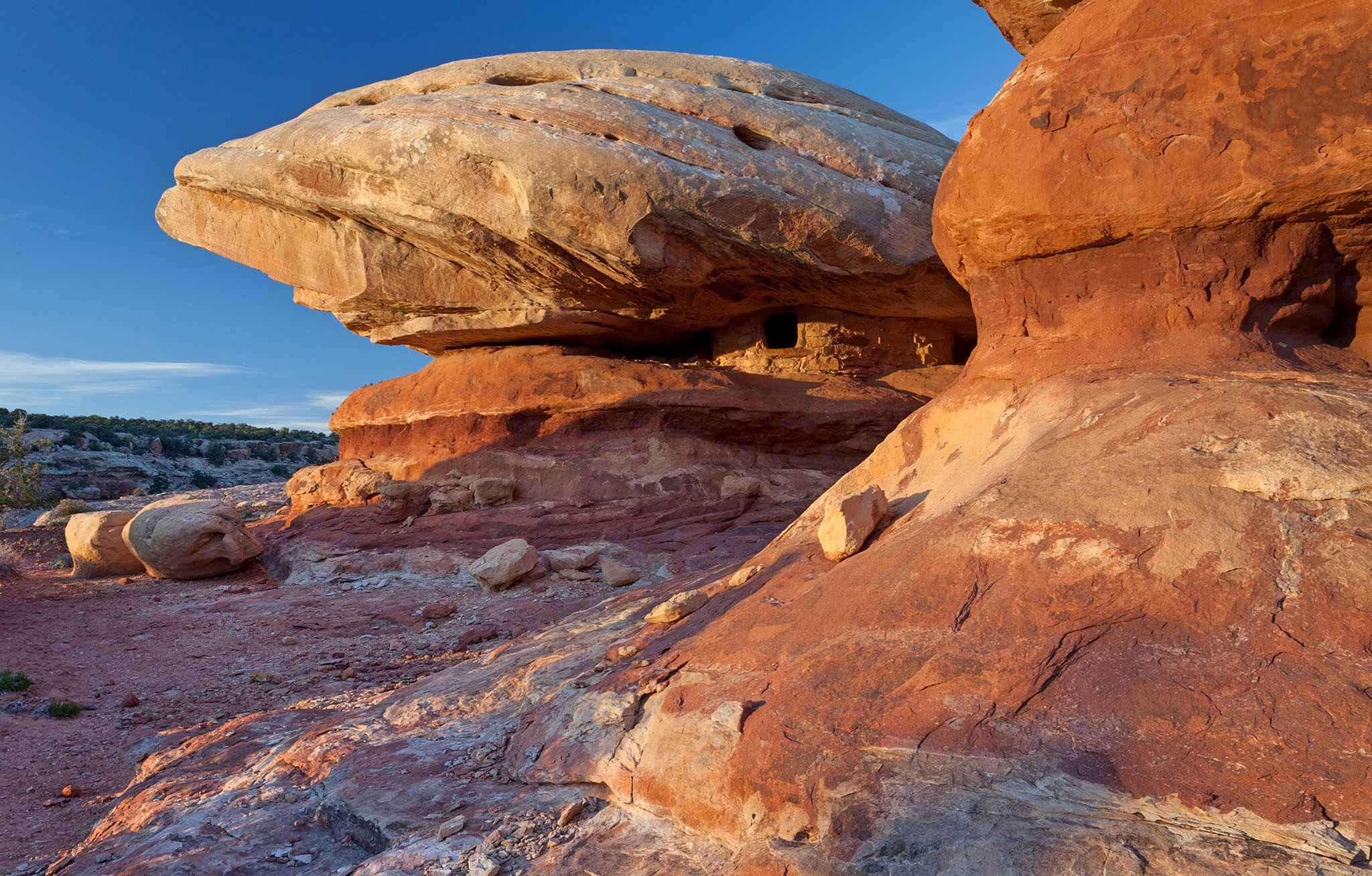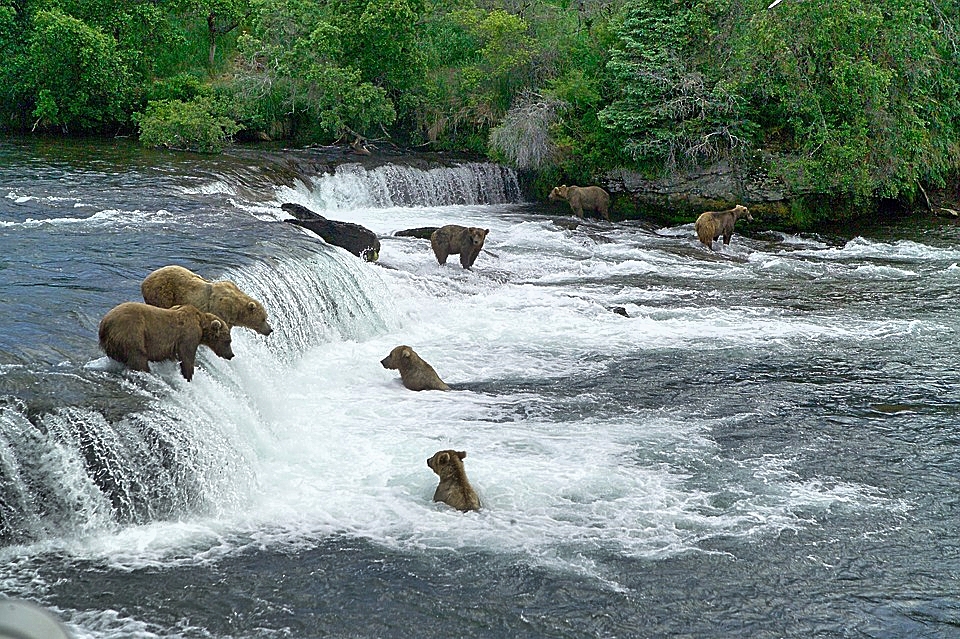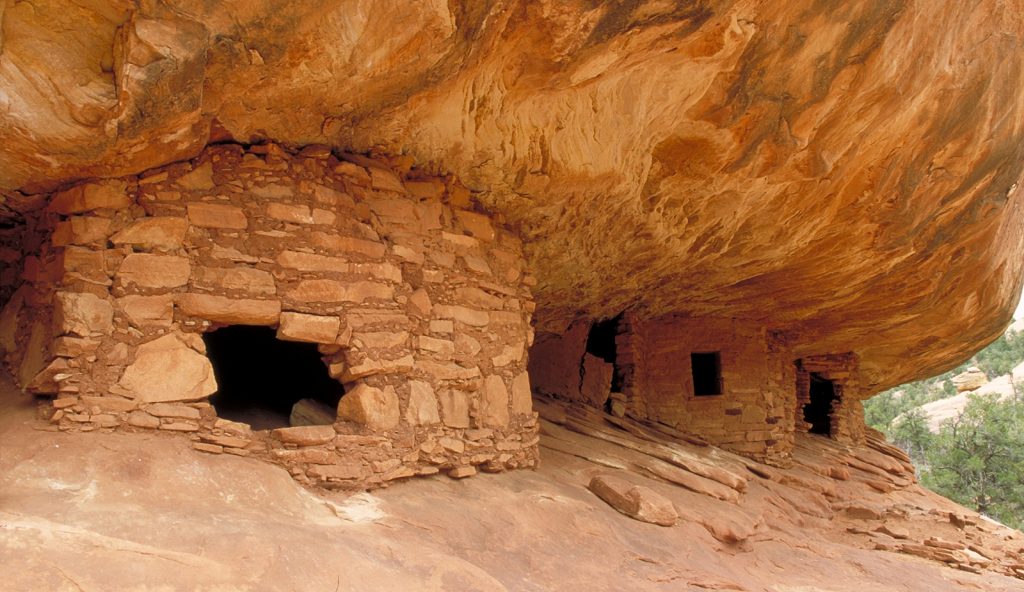If the divisive and painful battles over monuments are to be ameliorated, the Antiquities Act must be reformed. But, there is something Utah can do in the meantime–given the self-inflicted paralysis plaguing our moribund Congress. Utah can exempt itself from the Antiquities Act, and future monument designations. And yes, it’s been done before; by Wyoming and Alaska.
Commentary by Marjorie Haun
Utah’s elected leaders and citizens have been reaching out to President Trump with emails, phones calls and on social media to thank him for his decision to pare down the Bears Ears National Monument. In anticipation of his visit to Salt Lake City this upcoming Monday, the pro-local management and pro-centralized D.C. control sides are gearing up for their respective rallies and protests. And, although shrinking the monument to the greatest degree possible, and allowing those who live in the Bears Ears region to control their own lands, resources, and destiny is a wonderful step in the right direction, shrinking the monument is simply not enough. Trump can reduce the size of Obama’s monuments, and the next Obamaesque president can, again, put millions of acres under federal lock and key. There are currently no restrictions on presidential monument designations; how many, how big and how often they can be created. And sadly, there is no end in sight to the ferocious skirmishes that accompany these controversial and economically-damaging monument designations, so long as the Antiquities Act remains as is.
If the divisive and painful battles over monuments are to be ameliorated, the Antiquities Act must be reformed. But, there is something Utah can do in the meantime–given the self-inflicted paralysis plaguing our moribund Congress. Utah can exempt itself from the Antiquities Act, and future monument designations. And yes, it’s been done before; by Wyoming and Alaska.
In 1943 President Roosevelt exercised powers given to him by the Antiquities Act and created the Grand Teton National Monument. This was a controversial action at the time, and after a lengthy court battle members of the Wyoming delegation introduced legislation to turn the controversial monument into a national park. In exchange for making the monument permanent, Wyoming’s delegation secured an exemption for Wyoming from the Antiquities Act.
To this day presidents do not have the power to unilaterally declare national monuments in the state of Wyoming.
A similar story unfolded in Alaska during the 1970s. Like Wyoming, President Jimmy Carter used the Act to designate a controversial fifty-six million acres of national monuments in Alaska. Incensed, Alaska’s delegation leveraged the controversy of these designations to secure passage of the Alaska National Interest Lands Conservation Act. Under this act, if a president makes a designation larger than five thousand acres in Alaska, this president must get Congress to ratify the monument.
And, despite cries that ‘It can’t be done! It’s never been done before!’ from pro-monument factions, several past presidents have changed and reduced existing national monuments.
But aside from these exceptions, the Antiquities Act still gives presidents excessively broad powers, and as a result, many states have suffered monumental presidential overreach.
So, why doesn’t Utah follow Wyoming and Alaska?
Utah has been a constant target for monument designations. Ever since President Clinton designated the 1.9 million acre Grand Staircase-Escalante National Monument (GSENM) in 1996, Utahns have marshaled their support for members of Congress who have vowed to fight for an Antiquities Act exemption for Utah. Utah’s state and national leaders have become known for their outspokenness on issues of overregulation, natural resources, federalism, and local control. But for all the rhetoric, there has been a lack of tangible results.
After twenty years of lots of talk and few results, President Obama sensed weakness and struck again by designating the 1.3 million acre Bears Ears National Monument.
There are a number of fixes on the table including tribal co-management and, down the road, Antiquities Act reform. But the best, fastest, and most permanent fix for the people of Utah, is to say, “No more!”
Utah finally has someone in the White House who is willing to shrink Bears Ears to a size more consistent with the language of the Antiquities Act. And, given his stalwart support for local interests in the state, it’s very likely President Trump will also sign an Antiquities Act exemption for Utah.
[wp_ad_camp_1]
Utah has never been in a better position to protect itself from future presidential actions that lock up lands and resources in restrictive designations. The Chairman of the House Committee on Natural Resources, Rob Bishop, is a Utahn. The most respected Senior Senator from the West; Chairman of the Senate Finance Committee, and former Chairman of the Judiciary Committee, Orrin Hatch, is a Utahn. The Legislative Director for the Interior Department, John Tanner, is a former Orrin Hatch staffer…and a Utahn. And let’s not forget fighters like Senator Mike Lee and representatives Chris Stewart and Mia Love.
Now’s the time for Utah’s entire Congressional delegation to turn their rhetoric into something tangible for the well-being of those they serve.
Utah has a brief window of opportunity during which real, beneficial, lasting change can be effected.
On Monday, Trump will announce changes to Bears Ears and GSENM National Monuments. Utah’s locals will cheer, the corporate environmentalists will weep, wail and gnash their teeth, and the inevitable lawsuits will follow. But something more is needed to make the good steps taken by Trump and Utah’s Congressional delegation permanent. Wyoming did it. Alaska did it. Now is the time for Utah to take steps to become exempt from the Antiquities Act.
[paypal_donation_button]
Free Range Report
[wp_ad_camp_3] [wp_ad_camp_3] [wp_ad_camp_3]
[wp_ad_camp_2]




While an exemption to the Antiquities Act sounds like a good thing, the price for Utah would be accepting the Monuments, which is too high a price. The Antiquities Act is bad government, pure federal overreach, and should be repealed. That way, every State would be exempt. AK and MT made a bade deal.